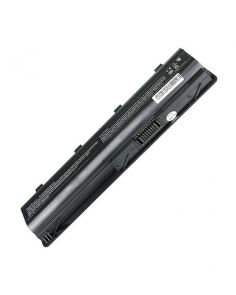Laptop batteries come in a plethora of styles and makes. Depending on the particular laptop one has and personal preferences based on particular needs, the laptop battery has endless possibilities!
Laptop batteries are virtual power packs with an extended lifespan but requiring constant attention and periodic recharging. Of course, each laptop battery is different, so it’s important to learn as much beforehand about what kind of laptop battery is needed and what its specifications are. Laptop batteries, like everything else, have particular conditions to consider based on the style, make, size, and purpose of the laptop battery.
The types of laptop batteries are endless. Some examples are as follows: Pavillion DV4,DV5, DV6 Laptop Battery, Compaq Presario R3000/4000 CA/CL Li-Ion, and Dell Inspiron 1545, just to name a few. Each of these Laptop batteries is designed for a particular system having certain features.
It is believed that Lithium-charged laptop batteries are the highest quality. Therefore Lithium-Ion laptop batteries are a sure thing with long life. Most laptop batteries are Lithium-Ion-charged. Lithium, a soft, silver-white metallic element, is a common charging element that powers laptops with fast speed, reception, and interface response.
Still, some points on laptop battery recharging and maintenance are important to know to maximize the laptop battery lifespan. First, the laptop shouldn’t be locked in a hot space for a long period of time. Ideally, a temperature somewhere between 50oF and 95oF would be appropriate and safe. Along the other metric system, between 10oC and 35oC is about right. Specifically, 22oC should be the temperature sought.
In regards to recharging, fully-charge the laptop battery when plugging in for the first time. Lithium-based batteries should be constantly and properly maintained in order to keep the electrons moving. This keeps the charge active for as long as possible. Next, the laptop battery should be charged and recharged periodically, and that should never stop. Finally, laptop batteries should be stored with a 50% charge. Ironically, storing a laptop battery at full charge for an extended period of time will cause it to lose some capacity. Moderation is the key to properly maintaining laptop batteries!
Whatever laptop battery is required, “charging up” on the specifications beforehand and knowing what is needed is a great start. These laptop batteries cost anywhere from $90 to $200, depending, so buying the right one will save a lot of time and money.




